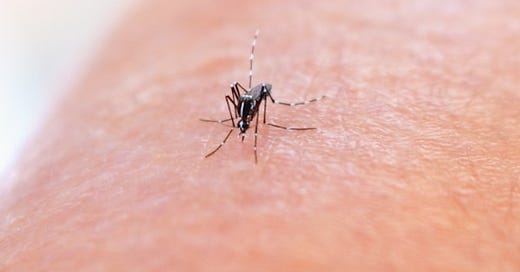The Tonga Ministry of Health reported seven additional dengue fever cases today. This brings the total to 625 cases since the outbreak was declared in February.
The island group of Vava’u has seen the most cases with 300, followed by Tongatapu (265), ‘Eua (58) and Haápai (2).
Officials reported an additional dengue fatality in an 8yr old male from Tongatapu. This follows a 19-year-old and a 7-month-old who died earlier, bringing the total deaths to three.
Nine cases are currently hospitalized (8 in Vaiola, 1 Princess Fusipala). They are all in stable condition.
Dengue Virus Type 2 (DENV-2) is the responsible virus for this current outbreak in Tonga.
The following response activities are in play:
Ongoing awareness programs to churches and workplaces including the FWC Mangia, Ministry of Land and Natural Resources, Ministry of Internal Affairs, Ministry of Tourism, Ministry of Justice, Foreign Affairs and Statistics ín Vavaú.
Ministry of Health in Vaiola hosted a meeting today with all District Officers in Tongatapu to strengthen and enhance Village Inspection and cleanup campaign targeting mosquito breeding sites to start next week and onwards.
Ongoing case investigation and vector control to hot spot and high risk areas.
The ongoing support from the people and communities, Government Ministries and NGOs, and stakeholders, as well as the continuous technical supports from WHO and UNICEF.
There are four closely related but antigenically different serotypes of the virus that can cause dengue (DEN1, DEN 2, DEN 3, DEN 4).
Dengue Fever (DF) – marked by an onset of sudden high fever, severe headache, pain behind the eyes, and pain in muscles and joints. Some may also have a rash and varying degree of bleeding from various parts of the body (including nose, mouth and gums or skin bruising).Dengue has a wide spectrum of infection outcome (asymptomatic to symptomatic). Symptomatic illness can vary from dengue fever (DF) to the more serious dengue hemorrhagic fever (DHF).
Subscribe to Outbreak News TV on YouTube
Dengue Hemorrhagic Fever (DHF) – is a more severe form, seen only in a small proportion of those infected. DHF is a stereotypic illness characterized by 3 phases; febrile phase with high continuous fever usually lasting for less than 7 days; critical phase (plasma leaking) lasting 1-2 days usually apparent when fever comes down, leading to shock if not detected and treated early; convalescence phase lasting 2-5 days with improvement of appetite, bradycardia (slow heart rate), convalescent rash (white patches in red background), often accompanied by generalized itching (more intense in palms and soles), and diuresis (increase urine output).
Dengue Shock Syndrome (DSS) — Shock syndrome is a dangerous complication of dengue infection and is associated with high mortality. Severe dengue occurs as a result of secondary infection with a different virus serotype. Increased vascular permeability, together with myocardial dysfunction and dehydration, contribute to the development of shock, with resultant multiorgan failure.
The MOH offers the following recommendations for the public:
1. Continue to clean up and destroy mosquito breeding sites around the HOME and SCHOOLS.
2. Wear appropriate clothing to minimize mosquito bites and use mosquito nets and repellents such as lotion and spray.
3. If you are sick, watch out for severe symptoms and seek medical attention immediately.





